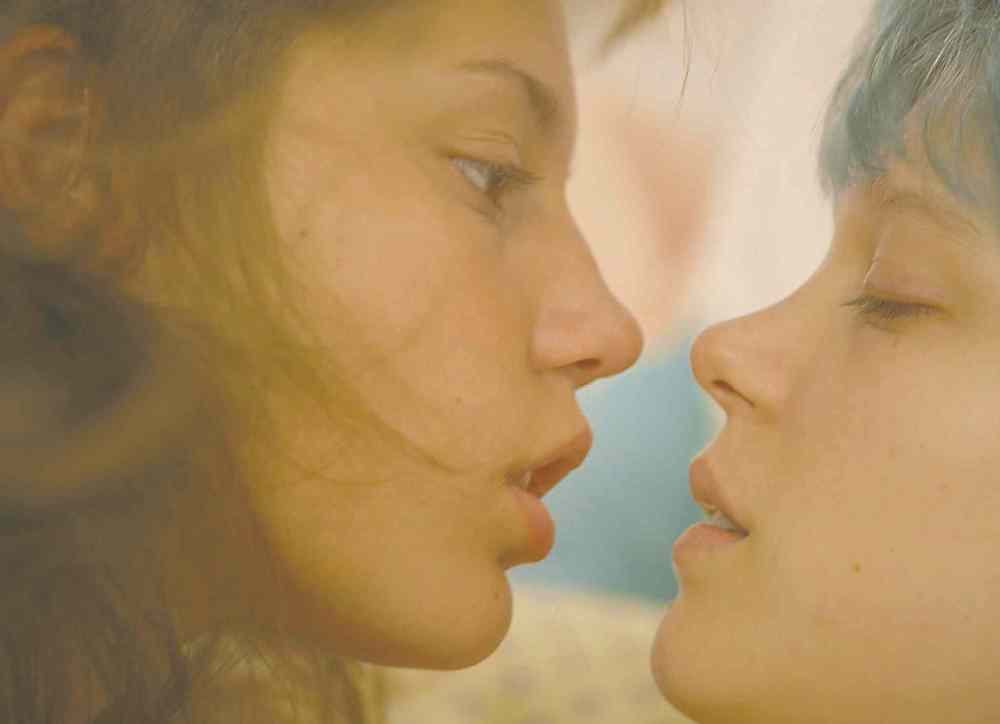Explicit, controversial, acclaimed… exploitative?
Advertisement
Read this article for free:
or
Already have an account? Log in here »
To continue reading, please subscribe:
Monthly Digital Subscription
$0 for the first 4 weeks*
- Enjoy unlimited reading on winnipegfreepress.com
- Read the E-Edition, our digital replica newspaper
- Access News Break, our award-winning app
- Play interactive puzzles
*No charge for 4 weeks then price increases to the regular rate of $19.95 plus GST every four weeks. Offer available to new and qualified returning subscribers only. Cancel any time.
Monthly Digital Subscription
$4.99/week*
- Enjoy unlimited reading on winnipegfreepress.com
- Read the E-Edition, our digital replica newspaper
- Access News Break, our award-winning app
- Play interactive puzzles
*Billed as $19.95 plus GST every four weeks. Cancel any time.
To continue reading, please subscribe:
Add Free Press access to your Brandon Sun subscription for only an additional
$1 for the first 4 weeks*
*Your next subscription payment will increase by $1.00 and you will be charged $16.99 plus GST for four weeks. After four weeks, your payment will increase to $23.99 plus GST every four weeks.
Read unlimited articles for free today:
or
Already have an account? Log in here »
Hey there, time traveller!
This article was published 29/11/2013 (4418 days ago), so information in it may no longer be current.
An unusually intimate story of one young woman’s journey into adulthood, sexuality and hard-won experience, Blue Is the Warmest Colour arrives bearing impressive laurels: it won the Palme d’Or at Cannes for Tunisian-French director Abdellatif Kechiche and its two stars Adèle Exarchopoulos and Léa Seydoux. It also sports an old-school Euro-sex controversy as it contains the most explicit love scenes this side of Last Tango in Paris.
Yet with all that in its favour, the truth is it is difficult to warm to Warmest Color.
It is certainly easy to like its heroine. Adèle (Adèle Exarchopoulos) is introduced as a high school girl, attempting to negotiate the mysteries of love in the conventional manner. Surrounded and influenced by her friends, she is compelled to lose her virginity to a likable, sensitive young man. But the relationship doesn’t take. Adèle realizes her interests lie elsewhere when she has a chance encounter with Emma (Léa Seydoux), a provocative, beguiling art student with blue-streaked hair she first spies on the street with her arm around another woman.

While still underage, Adèle follows Emma into a lesbian bar, where she makes her interest known. While Emma is a few years older and in a relationship, she reciprocates.
As years imperceptibly pass, the two eventually live together, only to have the relationship fall apart, partly as a result of Adèle’s tendency to sneak around behind Emma’s back with one or two male-co-workers.
If that sounds like a fairly simple premise, bear in mind that director Kechiche is not especially interested in a succinct three-act romantic melodrama.
Over its ponderous three-hour running time, the film’s approach is very much oriented toward the details of Adèle’s life, including education (the notion of romantic destiny is discussed in an English class before Adèle encounters it first-hand), art (Adèle finds herself slotted into the role of Emma’s “muse”) and food: Our heroine’s love of simple spaghetti Bolognese gives way to experimentation when Emma teaches her how to eat oysters, a scene that might have caused some eye-rolling for its obvious sexual innuendo if it wasn’t played entirely straight.
Anyway, as it turns out, Kechiche has no truck with innuendo when he takes the liberty of filming sex scenes in explicit, well-lit detail. (Note that the Manitoba Classification Board has given the film a rarely-bestowed R rating, meaning no one under the age of 18 is allowed in the theatre under any circumstances.)
It is interesting and appropriate that the Cannes award, usually given to a film’s director, was shared by both Kechiche and his two leading ladies. If the film resonates as a work of emotional honesty, it is largely due to the extraordinary commitment of Exarchopoulos and Seydoux, who evidently worked hard to make their characters living, breathing entities.
Kechiche certainly uses their investment but his own documentary-like viewpoint is off-putting, dispassionate and perhaps more than a little exploitative.
randall.king@freepress.mb.ca
Our newsroom depends on a growing audience of readers to power our journalism. If you are not a paid reader, please consider becoming a subscriber.
Our newsroom depends on its audience of readers to power our journalism. Thank you for your support.







